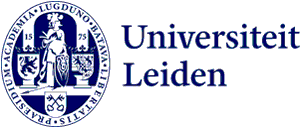
‘Climate damage and nature loss are unfairly distributed. And so are the solutions’
In the fight for a liveable planet, we desperately need a fairer distribution of wealth and equal rights for all, argues anthropology professor Marja Spierenburg. ‘That will also generate broad-based support for sustainable development.’
This article is in the new Leiden Delft Erasmus Universities (LDE) and Naturalis white paper: Connecting climate and biodiversity – For society, the economy and nature. This offers hopeful insights about the connection between climate and biodiversity and interviews with Koos Biesmeijer, Paul Behrens and more. The paper will be also published as a PDF on the LDE website.
How do climate change and biodiversity loss relate to inequality?
‘Wealthy people consume much more than those less fortunate and therefore have a much larger ecological footprint. The richest one per cent of people on earth emit twice as many greenhouse gases as the poorest half of the world’s population. Rich people put disproportionate pressure on global resource use: They fly more and when they do switch to an electric car, with government incentives no less, they tend to pick a massive SUV. Big cars need big batteries with a lot of lithium, the extraction of which is harmful to human health and the environment. And most people could get by just fine with a slightly smaller car.’
And the weakest shoulders bear the heaviest burden of ecological damage?
‘Countries in the global south have already been facing the impacts of climate change to a much greater extent and for much longer than we have. Parts of Asia and Africa are becoming uninhabitable due to high temperatures, drought and cyclones. Even in rich countries, vulnerable communities are more likely to live in flood-prone areas, for example in the United States. In the Netherlands, homeowners can invest in insulating their homes, again benefiting from government subsidies, while tenants are stuck with high energy bills that thrust them into energy poverty. That contrast between rich and poor does little to build trust in the government and support for sustainability. To add insult to injury, people in poor neighbourhoods are often less familiar with their options for raising objections.’
What about the distribution of biodiversity and nature?
‘In the Netherlands, people with a more modest budget tend to live in greyer neighbourhoods, which means they miss out on the benefits of green space, such as improved health, well-being and leisure opportunities. People who are less well-off feel that they are footing the bill for climate change or nature conservation measures, prompting some to lose faith in the government. Social scientists, such as anthropologists, can help us listen to stories that all these people have to tell.’

Won’t less poverty mean more consumption and greater ecological footprints?
‘There’s a dual attitude towards poverty when it comes to sustainability. There’s the fear that people will over-exploit nature out of poverty, counterposed by the fear that development will only promote more consumption. Development is good, provided it is sustainable. Besides, greater livelihood security also enables people to plan for the future and have fewer children, for instance. The hope is also that people in the global south can skip a step, and immediately switch from no electricity at all to electricity from renewable sources, which will mean that greater livelihood security actually eases the pressure on resources. Strikingly, we tend not to challenge the wealthy with the same dual attitude, while the rich are the real culprits behind overconsumption.’
Can climate mitigation and biodiversity measures also reinforce inequality?
‘Absolutely. Settlers in South Africa were avid hunters. When they realised after a while that they had been very trigger-happy indeed, they turned to setting up nature reserves on land that used to belong to local farmers. To this day, people are still loaded onto trucks and dumped somewhere else, even under the watchful eye of international wildlife organisations. A climate example: The Netherlands, Germany and Norway are eager to invest in green energy in South Africa, a country ravaged by water and power shortages, but all this green energy is used to make hydrogen for the Dutch energy transition.’
How can we put a stop to these neocolonial practices in Africa?
‘We need to prioritise human rights and distribute wealth more equitably. In the Netherlands, farmers in Wieringermeer were also in danger of being expropriated to make room for nature but because they live in a constitutional state and have good representation, they demanded compensation. Many people in Africa lack this level of empowerment.’
What would a fair world look like in, say, 2100?
‘We will have moved away from the fallacy of endless economic growth and the delusion that there is a sustainable way of doing so. We will have capped carbon emissions and pollution and companies will be held responsible for risks of wrongdoing throughout the production chain, such as human rights violations, land grabbing, environmental degradation and exploitation. As it happens, this scenario will also reduce the number of refugees, which is currently a hot-button issue in Dutch politics. Fewer people will have to flee floods and drought, or conflicts fuelled by food scarcity.’
Text: Joris Tielens/LDE
Marja Spierenburg is Professor of Anthropology of Sustainable Development and Livelihoods at Leiden University and Research Fellow at Stellenbosch University in South Africa. Her research focuses on participation, power and inequality in relation to conservation, land rights and climate change. She is a core member of the interfaculty Liveable Planet programme.
